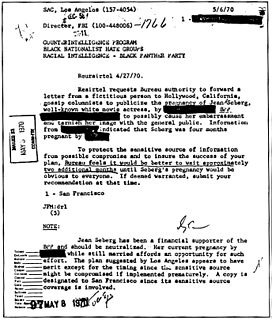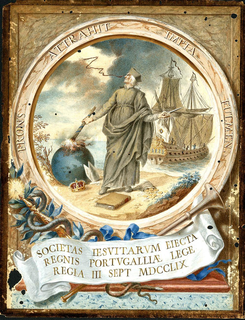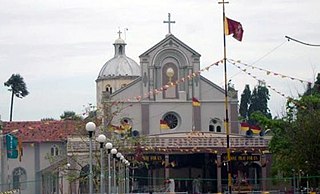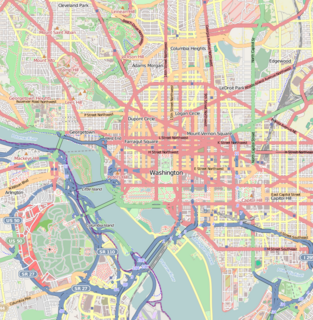 W
WThe 8888 Nationwide Popular Pro-Democracy Protests, also known as the 8-8-88 Uprisings, or the People Power Uprising, the People's Democracy Movement and the 1988 Uprising, were a series of nationwide protests, marches and civil unrest in Burma (Myanmar) that peaked in August 1988. Key events occurred on 8 August 1988 and therefore it is known as the 8888 Uprising. The protests began as a student movement and were organised largely by university students at the Rangoon Arts and Sciences University and the Rangoon Institute of Technology (RIT).
 W
WMun Awng is a Kachin singer, songwriter, and pro-democracy activist. Awng was born in the Kachin State in north of Burma to a small Christian minority. His Christian name was Dennis Daws, a name he later changed. Awng became a popular singer and musician in Burma during the 1980s. Due to having participated in the wave of anti-government demonstrations in 1988, that resulted in more than 3,000 dead civilians, he was forced to leave Burma and has been living in exile in Eidsvoll, Norway since. He fled to Norway to work with the opposition Democratic Voice of Burma radio and television broadcaster. From abroad he continued to release albums and activists sang his songs while facing down the military in both the 1996, and the 2007 anti-government street protests. Awng is considered a "subversive element" by the military junta in Burma.
 W
WThe Belene labour camp, also referred to as Belene concentration camp, was part of the network of forced labour camps in Communist Bulgaria. It was located on the Belene Island, between two branches of the Danube river. At the height of Valko Chervenkov's repressions in 1952, the camp had 2,323 inmates - 2,248 men and 75 women.
 W
WBoluan Fanzheng or Poluan Fancheng, literally meaning "eliminating chaos and returning to normal", was a period in the history of People's Republic of China during which Deng Xiaoping, then paramount leader of China, led a far-reaching program attempting to correct the mistakes of the Cultural Revolution launched by Mao Zedong. The program gradually dismantled the Maoist policies associated with the Cultural Revolution, rehabilitated millions of victims who were persecuted during the Revolution, initiated various sociopolitical reforms, and brought the country back to order in a systematic way. The Boluan Fanzheng period is regarded as an important transition period in China's history, which served as the bedrock of the historic Reform and Opening-up program starting in December 1978.
 W
WThe Causeway Bay Books disappearances are a series of international disappearances concerning five staff members of Causeway Bay Books, a former bookstore located in Causeway Bay, Hong Kong. Between October and December 2015, five staff of Causeway Bay Books went missing. At least two of them disappeared in mainland China, one in Thailand. One member was last seen in Hong Kong, and eventually revealed to be in Shenzhen, across the Chinese border, without the travel documents necessary to have crossed the border through legal channels.
 W
WCOINTELPRO (1956–present) is a series of covert and illegal projects conducted by the United States Federal Bureau of Investigation (FBI) aimed at surveilling, infiltrating, discrediting, and disrupting American political organizations. FBI records show COINTELPRO resources targeted groups and individuals the FBI deemed subversive, including feminist organizations, the Communist Party USA, anti–Vietnam War organizers, activists of the civil rights movement or Black Power movement, environmentalist and animal rights organizations, the American Indian Movement (AIM), independence movements, and a variety of organizations that were part of the broader New Left and unrelated groups such as the Ku Klux Klan.
 W
WA curfew is an order specifying a time during which certain regulations apply. Typically it refers to the time when individuals are required to return to and stay in their houses or homes. Such an order may be issued by public authorities but also by the owner of a house to those living in the household. For instance, an au pair is typically given a curfew, which regulates when they must return to the host family's home in the evening.
 W
WThe curfew bell was a bell rung in the evening in Medieval England as the curfew signal for everyone to go to bed.
 W
WA death squad is an armed group whose primary activity is carrying out extrajudicial killings or forced disappearances as part of political repression, genocide, ethnic cleansing, or revolutionary terror. Except in rare cases where they are formed by an insurgency, domestic or foreign governments actively participate in, support, or ignore the death squad's activities. Death squads are distinct from assassination due to their permanent organization and the larger number of victims who may not be prominent individuals. Other violence, such as rape, torture, arson, or bombings may be carried out alongside murders. They may comprise a secret police force, paramilitary militia groups, government soldiers, policemen, or combinations thereof. They may also be organized as vigilantes. When death squads are not controlled by the state, they may consist of insurgent forces or organized crime, such as the ones used by cartels.
 W
WDecommunization is the process of dismantling the legacies of communist state establishments, culture, and psychology in the post-communist states. It is sometimes referred to as political cleansing. The term is most commonly applied to the former countries of the Eastern Bloc and the post-Soviet states to describe a number of legal and social changes during their periods of postcommunism.
 W
WThe term enemy of the people or enemy of the nation, is a designation for the political or class opponents of the subgroup in power within a larger group. The term implies that by opposing the ruling subgroup, the "enemies" in question are acting against the larger group, for example against society as a whole. It is similar to the notion of "enemy of the state". The term originated in Roman times as Latin: hostis publicus, typically translated into English as the "public enemy". The term in its "enemy of the people" form has been used for centuries in literature.
 W
WThe term enemy of the people or enemy of the nation, is a designation for the political or class opponents of the subgroup in power within a larger group. The term implies that by opposing the ruling subgroup, the "enemies" in question are acting against the larger group, for example against society as a whole. It is similar to the notion of "enemy of the state". The term originated in Roman times as Latin: hostis publicus, typically translated into English as the "public enemy". The term in its "enemy of the people" form has been used for centuries in literature.
 W
WA forced disappearance occurs when a person is secretly abducted or imprisoned by a state or political organization, or by a third party with the authorization, support, or acquiescence of a state or political organization, followed by a refusal to acknowledge the person's fate and whereabouts, with the intent of placing the victim outside the protection of the law.
 W
WCommunist Albania maintained labour camps throughout the territories it controlled. The first Communist Albanian labour camps were around Tirana. A number of camps existed between 1946 and 1991.
 W
WIB was a secret Swedish intelligence agency within the Swedish Armed Forces. Its two main purposes were to handle liaison with foreign intelligence agencies and to gather information about communists and other individuals who were perceived to be a threat to the nation. The exposure of the IB operations came to be known as the IB affair (IB-affären).
 W
WThe burning of the Jaffna Public Library took place on the night of June 1, 1981, when an organized mob of Sinhalese individuals went on a rampage, burning the library. It was one of the most violent examples of ethnic biblioclasm of the 20th century. At the time of its destruction, the library was one of the biggest in Asia, containing over 97,000 books and manuscripts.
 W
WThe Train of Pain – Memorial to Victims of Stalinist Repression is a monument in Chișinău, Moldova. A temporary stone was unveiled in 1990 in Central Station Square commemorating the 1940–1951 mass deportations in Soviet Moldavia. A permanent memorial was completed at the site in 2013. The sculptural element was assembled in Belarus.
 W
WThe Monument to the Victims of the Soviet Occupation is a proposed monument in Chişinău, Moldova.
 W
WThe Pacification of Ukrainians in Eastern Galicia was a punitive action against the Ukrainian minority in Poland, carried out by police and military of the Second Polish Republic in September–November 1930 in response to a wave of sabotage and terrorist acts perpetrated by Ukrainian nationalists.
 W
WPitchcapping was a form of torture used by the British military against suspected Irish rebels during the period of the 1798 rebellion, most famously on Anthony Perry, one of the leaders of the Wexford Rebels.
 W
WThe Popular center of remembrance is a former illegal detention center in Rosario, province of Santa Fe, Argentina. It was used by the provincial police between 1976 and 1979, during the Dirty War, to hold people with no formal charges and torture them, under the pretense of fighting radical left-wing political subversion and terrorism. Most of the detainees were in fact social activists, political dissidents, or merely relatives or acquaintances of people that were ideologically suspect in the eyes of the military junta of the self-styled National Reorganization Process.
 W
WThe 2020 Hong Kong Legislative Council election was originally scheduled on 6 September 2020 until it was postponed by the government for a whole year to 5 September 2021. On 31 July 2020, Chief Executive Carrie Lam announced that she was invoking the Emergency Regulations Ordinance to postpone the election under the emergency powers granted to her by it, citing the recent resurgence of the COVID-19 cases, adding that the move was supported by Beijing.
 W
WThe Constitution of South Africa protects all basic political freedoms. However, there have been many incidents of political repression, dating back to at least 2002, as well as threats of future repression in violation of this constitution leading some analysts, civil society organisations and popular movements to conclude that there is a new climate of political repression or a decline in political tolerance.
 W
WThe Sri Lankan state has been accused of state terrorism against the Tamil minority as well as the Sinhalese majority. The Sri Lankan government and the Sri Lankan Armed Forces have been charged with massacres, indiscriminate shelling and bombing, extrajudicial killings, rape, torture, disappearance, arbitrary detention, forced displacement and economic blockade. According to Amnesty International state terror was institutionalized into Sri Lanka's laws, government and society.
 W
WThe suppression of the Jesuits was a politically instigated removal of all members of the Society of Jesus from most of the countries of Western Europe and their colonies, beginning in 1759, and ultimately approved by The Holy See in 1773. In 1814, Pope Pius VII restored the Society to its previous provinces and Jesuits began resuming their work in those countries.
 W
WThe Vankalai massacre was a massacre of a family of four minority Sri Lankan Tamils at the hands of the Sri Lankan military personnel from the village of Vankalai in Mannar District, Sri Lanka on June 8, 2006. The victims were tortured and the mother was gang raped before her murder.
 W
WThe Victims of Communism Memorial is a memorial in Washington, D.C. located at the intersection of Massachusetts and New Jersey Avenues and G Street, NW, two blocks from Union Station and within view of the U.S. Capitol.
 W
WThe Yan'an Rectification Movement, also known as Zhengfeng or Cheng Feng, was the first ideological mass movement initiated by the Chinese Communist Party (CCP), going from 1942 to 1945. The movement took place at the communist base at Yan'an, a remote and isolated mountainous area in northern Shaanxi, after the communists' Long March. Though it was during the Second Sino-Japanese War, the CCP was experiencing a time of relative peace when they could focus on internal affairs.
 W
WThe Years of Lead was a period of the rule of King Hassan II of Morocco, from roughly the 1960s through the 1980s, marked by state violence and repression against political dissidents and democracy activists.